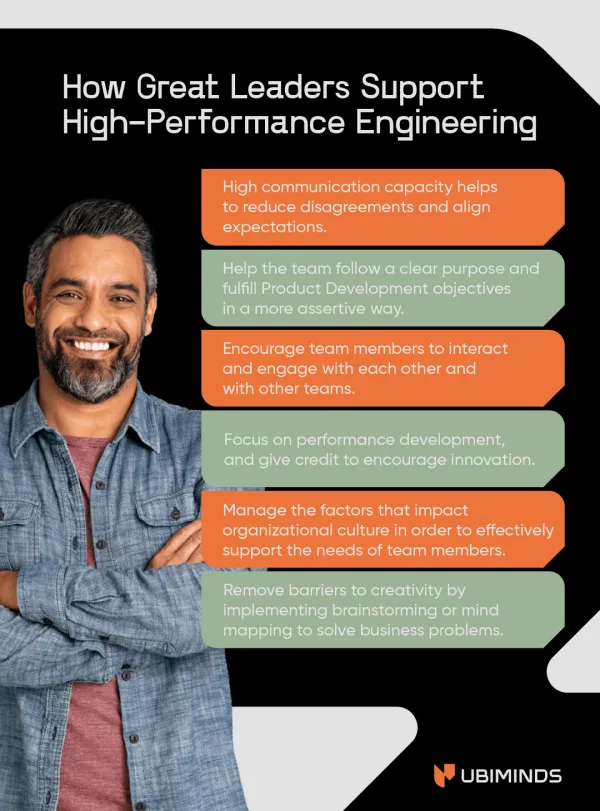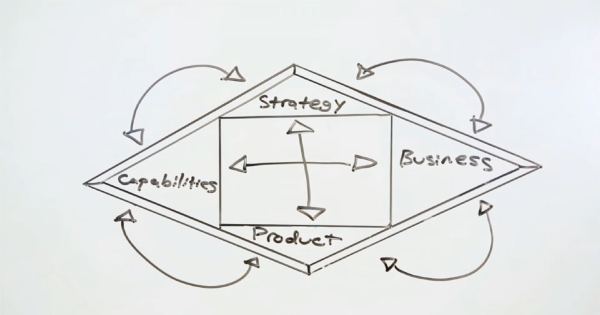Leading a successful software company is no easy feat. The competitive landscape is fierce, technologies are constantly evolving, and customer expectations are ever-increasing. This demands exceptional leadership – a blend of vision, strategic thinking, and the ability to navigate the complexities of the modern tech world. This article will delve into the essential leadership skills and best practices for CEOs, COOs, and co-founders, equipping them with the knowledge to build thriving software businesses.
We’ll explore crucial areas such as developing a compelling vision and strategy, building high-performing teams, managing finances effectively, fostering a culture of innovation, and mastering the art of communication and transparency. By the end of this article, you’ll have a deeper understanding of the leadership challenges and opportunities within the software industry and be better equipped to guide your company towards success.
5 Foundational Principles for Software Company Leaders
1. Chart the Course: Vision, Strategy, and Roadmap
A clear vision provides direction and purpose, guiding all decisions and actions within the company.
- Define a clear and compelling vision for the company.
- Develop a robust and adaptable business strategy.
- Conduct thorough market research and competitive analysis.
- Set ambitious but achievable goals.
2. Build High-Performing Teams: Culture, Talent, and Leadership
A strong team is the foundation of any successful company.
- Build a high-performing and diverse team.
- Foster a culture of innovation, collaboration, and continuous learning.
- Prioritize employee well-being and work-life balance.
- Develop strong leadership within the team.
3. Drive Sustainable Growth: Financial Management & Funding Strategies
Sound financial management is crucial for long-term sustainability and achieving business objectives.
- Secure funding and manage cash flow effectively.
- Develop a sound financial model and track key metrics.
- Explore strategic partnerships and potential acquisitions.
- Prioritize profitability and sustainable growth.
4. Embrace Disruption: Innovation and Adaptability in Action
The software industry is constantly evolving. Adaptability and a focus on innovation are key to staying competitive.
- Embrace new technologies and industry trends.
- Foster a culture of experimentation and learning from failures.
- Encourage continuous improvement and product iteration.
- Adapt to changing market conditions and customer needs.

There are key behaviors CTOs, CPOs, Managers and Tech Leads can lean into to to properly support the team.
5. Build Trust: Communication, Transparency, and Stakeholder Engagement
Open and honest communication builds trust, fosters collaboration, and ensures everyone is aligned towards common goals.
- Maintain open and honest communication with the team.
- Communicate the company’s vision and strategy effectively.
- Build strong relationships with customers, investors, and partners.
- Be transparent about company performance and challenges.

The Role of Leadership in Leading Remote Teams involves understanding the nuances of Distributed Team Management and creating strategies that ensure effective collaboration and trust. Photo by Lala Azizli.
Roles, Responsibilities, and Essential Skills for Software Leaders
Leading a successful software company requires a diverse skillset among its leadership team. While each role – CEO, COO, and Co-Founder – may have primary responsibility for certain skills, successful collaboration is key.
Technical Acumen: Every Leader as a Guide to Technology
While not always a deep dive for all, a foundational understanding of software development principles is crucial for all leaders. This enables informed decisions regarding technology investments, product roadmap, and competitive differentiation.
Collaboration: The CEO relies on the CTO for technical guidance, while the COO ensures operational alignment with technology choices. The CPO leverages technical insights to define product strategy.
The Art of Strategy: Foresight and Shaping the Future
Ability to analyze market trends, identify opportunities, and develop effective strategies. Strategic Thinking is shared across all C-level roles, with CEO taking the lead.
- Chief Executive Officer — CEO: Drives the overall vision, long-term strategy, and market positioning.
- Chief Operating Officer — COO: Focuses on strategic operational planning, resource allocation, and identifying operational efficiencies.
- Chief Technology Officer — CTO: Contributes to technology strategy, identifying emerging technologies and their potential impact.
- Chief Product Officer — CPO: Defines product strategy aligned with market needs and business objectives.
- Chief Marketing Officer — CMO: Develops strategic marketing plans to reach target audiences and drive growth.
- Chief Financial Officer — CFO: Provides financial guidance and assesses the financial implications of strategic decisions.
Building Bridges: Communication & Interpersonal Skills
Excellent written and verbal communication, strong interpersonal skills, and the ability to build relationships. Essential for all C-level executives.
- CEO: Serves as the primary external communicator, representing the company to investors, partners, and the media.
- COO: Communicates effectively with internal and external stakeholders, including customers, vendors, and employees.
- CTO: Communicates technical concepts clearly to both technical and non-technical audiences.
- CPO: Communicates the product vision and roadmap to stakeholders.
- CMO: Develops compelling marketing messages and builds strong brand awareness.
- CFO: Communicates financial performance and risk to stakeholders.
Navigating Complexity: Problem-Solving and Decision-Making
Ability to analyze complex problems, make sound decisions under pressure, and effectively navigate challenges. It’s a shared responsibility, often requiring collaborative decision-making.
- CEO: Ultimately responsible for making critical business decisions.
- COO: Focuses on operational challenges and identifying efficient solutions.
- CTO: Provides technical expertise in evaluating and mitigating technological risks.
- CPO: Analyzes user feedback and makes data-driven decisions regarding product development.
- CMO: Adapts marketing strategies based on market feedback and performance data.
- CFO: Analyzes financial data and makes informed decisions regarding resource allocation.
Leading with Impact: Inspiring, Motivating, and Driving Results
Ability to inspire and motivate teams, build high-performing cultures, and foster a positive work environment. It’s another shared responsibility across all leaders.
- CEO: Sets the overall leadership tone and inspires the entire organization.
- COO: Leads and motivates operational teams, ensuring efficient execution.
- CTO: Leads and motivates the development team.
- CPO: Leads and motivates the product team.
- CMO: Leads and motivates the marketing and sales teams.
- CHRO: Focuses on employee development, well-being, and creating a positive work environment.
- CLO: Ensures legal and regulatory compliance, protecting the company’s interests.

Almost every company faces the same software development challenges: knocking down silos to improve synergy between strategy, business, product and development capabilities
Perspectives: What Others Wish You Knew (And Might be Afraid to Tell You)
Let’s dive into the perspectives of key stakeholders, offering insights that may not always be readily apparent.
What Your Investors Wish You Knew (But Might Be Hesitant to Say)
Securing investment is just the beginning. Investors are eager to see consistent progress towards long-term, sustainable growth.
- Focus on sustainable growth: Investors are not just looking for quick wins. They want to see a clear path to long-term profitability and sustainable growth.
- Transparency and communication are key: Regular and honest communication builds trust and strengthens investor relationships.
- Adapt and pivot when necessary: The market is constantly evolving. Be prepared to adjust your strategy based on market feedback and changing conditions.
- Prioritize customer satisfaction: Happy customers lead to increased revenue and long-term success, which ultimately benefits investors.
Things Your Employees Wish You Knew (But Might Be Hesitant to Share)
Happy employees are productive employees. Prioritizing employee well-being and fostering a positive work environment is crucial for long-term success.
- Employee well-being matters: Prioritize employee health, work-life balance, and opportunities for growth and development.
- Recognize and reward hard work and dedication: Show appreciation for employee contributions and celebrate successes.
- Foster a culture of open communication and feedback: Encourage open dialogue and actively listen to employee concerns and suggestions.
- Invest in employee development: Provide opportunities for professional growth, such as training, mentorship, and skill-building programs.
Things Your Vendors Wish You Knew (But Might Not Want to Upset You)
Strong vendor relationships are essential for the success of any software company. Open communication and mutual respect are paramount.
- Clear communication and timely payments are crucial: Maintain open communication channels and ensure timely payment of invoices.
- Value their expertise and contributions: Recognize the value of your vendor relationships and treat them as valued partners.
- Provide clear expectations and requirements: Clearly communicate your needs and expectations to ensure successful project delivery.
- Build long-term partnerships: Foster strong, mutually beneficial relationships with your key vendors.
Things Your Competitors Hope You Don’t Know (But You Should)
Staying ahead of the competition requires constant vigilance and a deep understanding of the competitive landscape.
- Focus on innovation and differentiation: Continuously innovate and differentiate your products and services to stay ahead of the competition.
- Don’t underestimate the power of customer loyalty: Build strong customer relationships and cultivate brand loyalty.
- Stay agile and adaptable to market changes: Be prepared to quickly adapt to changing market conditions and address emerging threats.
- Maintain a strong focus on customer satisfaction: Exceed customer expectations and build a strong reputation in the market.

Situational Leadership is a theory that suggests that effective leadership requires adapting one’s style to fit the specific situation, considering the readiness and maturity level of the followers. The Last of Us series provides numerous examples of how this theory can be applied in real-world scenarios. Photo by Sam White.
Essential Leadership Skills: A Final Word for Software Leaders
Leading a successful software company is a challenging but rewarding endeavor. It requires a combination of vision, strategy, strong leadership, and a relentless focus on innovation and customer satisfaction. By embracing these principles and continuously learning and adapting, leaders can navigate the complexities of the software industry and guide their companies towards sustained success.
Additional Resources
- [Whitepaper] Future-Proof Software: Your Guide to Key Strategies and Trends
- [Newsletter] Leadership Bytes
- [Community] Connecting the Americas
- [Podcast] Ubiminds Academy Deep Dive
If you’re a tech founder looking for trustworthy leaders, Ubiminds’ Talent-as-a-Service model also offers fractional CXOs. Reach out to learn more about our professional matchmaking service.
FAQs: Leadership in Software Companies

International Marketing Leader, specialized in tech. Proud to have built marketing and business generation structures for some of the fastest-growing SaaS companies on both sides of the Atlantic (UK, DACH, Iberia, LatAm, and NorthAm). Big fan of motherhood, world music, marketing, and backpacking. A little bit nerdy too!








